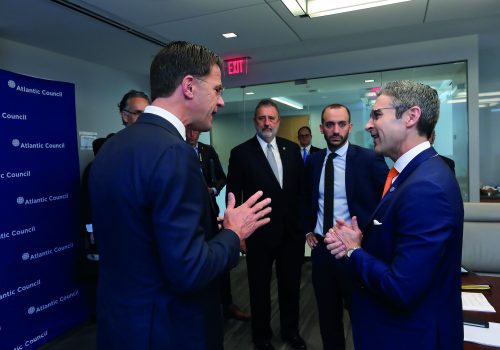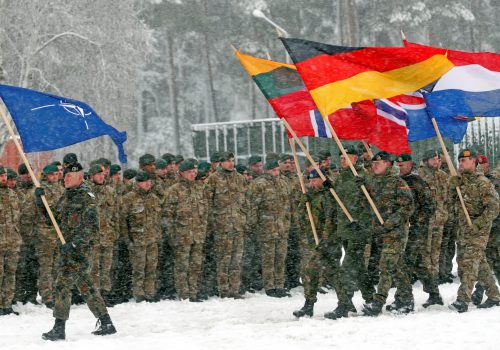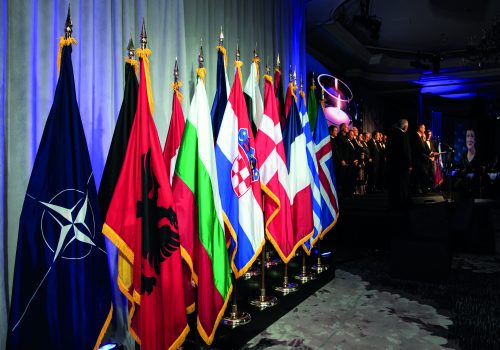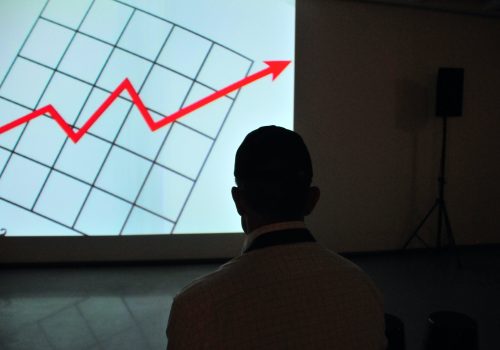Eurasia Center
Promoting stability, democratic values, and prosperity across Eurasia.
Core impact/accomplishments for 2019
In 2019, the Eurasia Center was laserfocused on protecting bipartisan support for Ukraine in Washington. Despite a turbulent US political landscape, in December the center hosted a landmark, bipartisan event on Capitol Hill together with nine other think tanks to reaffirm support for Ukraine and its democratic aspirations. The center’s work saw real impact when Congress levied sanctions on Nord Stream 2 and an additional $50 million was authorized in military aid for Ukraine.
To further bolster its network on Capitol Hill, the center convened its second class of the Eurasia Congressional Fellowship Program. The 2019 program brought together sixteen Senate and House staffers who participated in a series of policy briefings as well as a study trip to Kyiv and the Donbas.
The center also helped protect Ukraine’s democratic processes as the country held its most significant elections since the Revolution of Dignity in 2014. In the run-up to Ukraine’s presidential elections, the center partnered with local and international organizations to form a Ukrainian Election Task Force designed to monitor and expose election interference. In March, the center hosted its second #DisinfoWeek, a week-long series of events in Athens, Brussels, and Madrid. More than seven hundred people attended, and nearly two thousand tuned in to watch virtually. Participants probed an array of issues including protecting democratic elections, reporting in the age of disinformation, regulating the web, and identifying bots, trolls, and deepfakes. In October, the third annual Global Forum on Strategic Communications brought together nearly three hundred participants from academia, tech, government, civil society, and the private sector to strategize on a path forward against disinformation.
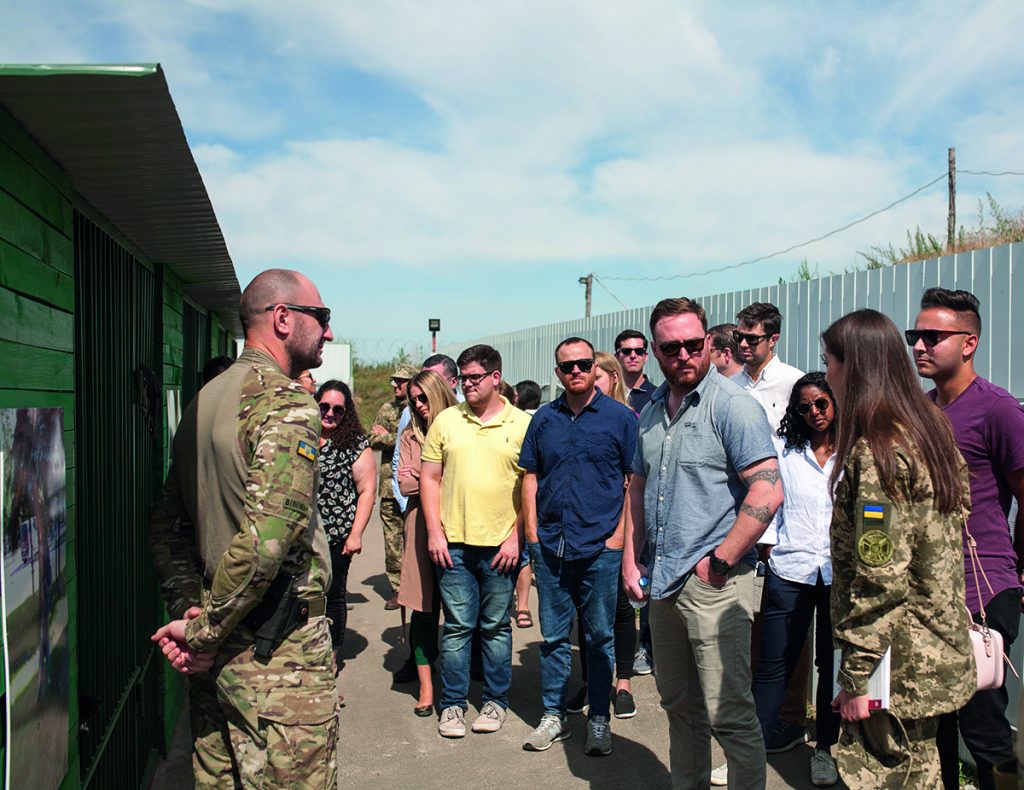
The center’s UkraineAlert blog focused on Ukraine’s presidential and parliamentary elections and, for the first time ever scooped the local media and announced five candidates under consideration for prime minister, garnering more than 100,000 hits.
The Eurasia Center also launched several projects with the aim of tracking and highlighting the Kremlin’s activities at home and abroad. In February, it published The Putin Exodus: The New Russian Brain Drain, which highlights the relationship between Russians living abroad and the Kremlin’s repressive policies at home. The report was widely covered by press in the United States, Europe, and Russia. In September, the Eurasia Center and Adrienne Arsht Latin America Center collaborated on a report that underscored how Russia’s actions in Venezuela undermine US regional interests.
2020 strategy
In 2020, the Eurasia Center will continue to focus on maintaining bipartisan support for a sound Ukraine policy. An important piece of this effort will focus on maintaining pressure on the Kremlin for its war in the Donbas and strengthening Ukraine’s position in talks to end the war.
This year will continue to test the durability of Eurasia’s democratic institutions on a regional scale. Georgia will hold critical parliamentary elections in October, and Ukraine will hold local but important elections in the fall. The center will work to promote democracy, open societies, and market economies throughout the region, and strengthen the capacity of Eurasian countries to choose their own geopolitical course.
Amid all of this, Russia’s actions will remain extremely influential. In response, the center plans to conduct significant studies on developments in Russia and produce a paper on US strategy toward the Kremlin. Other key countries of focus will include Armenia and Uzbekistan.
Next:
Read the full report:
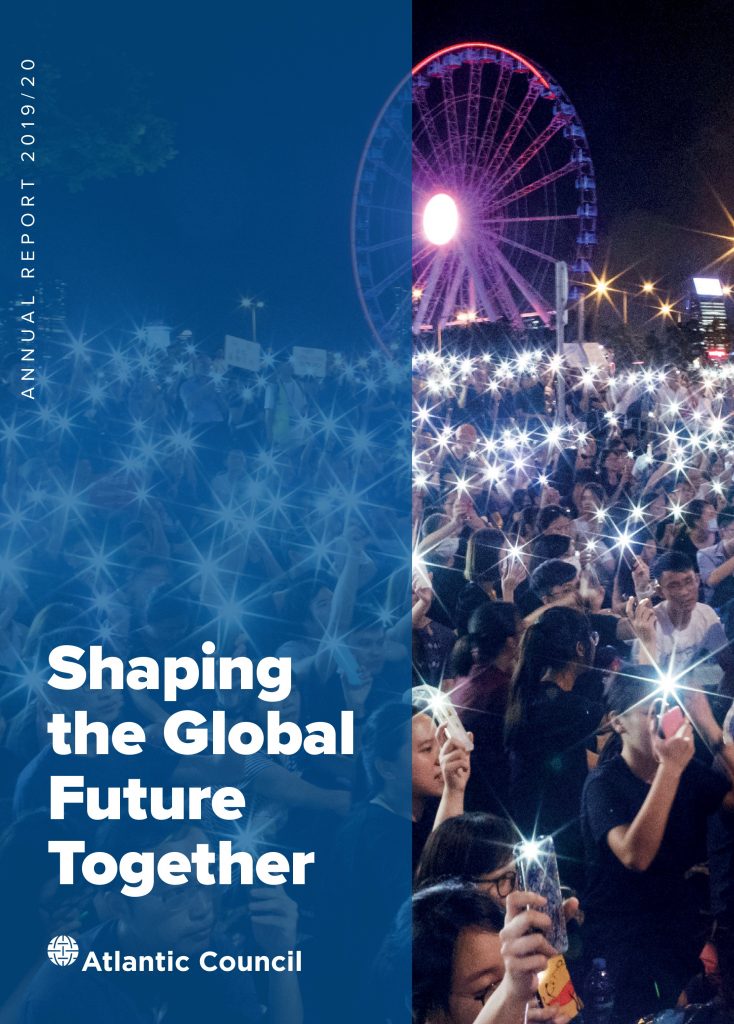
Annual Report 2019/2020
John FW Rogers, Chairman of the Atlantic Council, and Fred Kempe, CEO and President, explain how our past year’s performance, and a dozen years of growth and innovation, helped position us for the historic disruptions of 2020. Read the full introduction.
Image: Image: General David H. Petraeus, US Army Ret. (center) and Ambassador John Herbst, director at the Atlantic Council’s Eurasia Center (left), visit Ukrainian soldiers stationed on the line of contact in Avdiivka, Ukraine.
